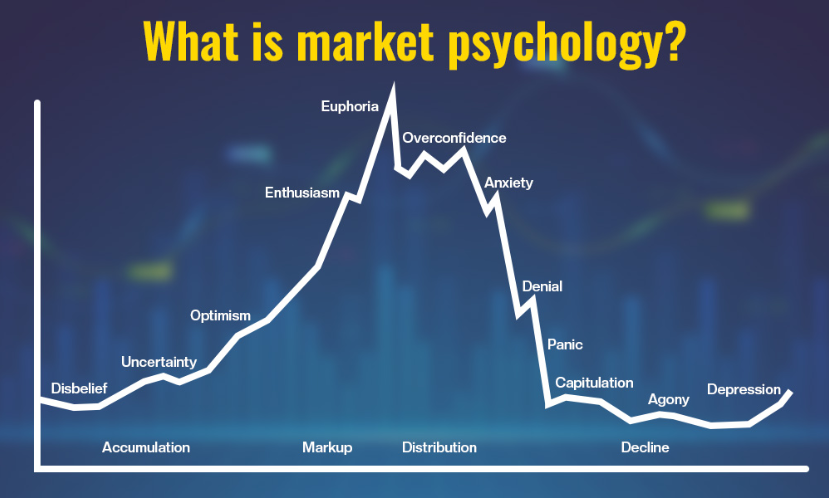The Psychology of Investing: Managing Emotions in the Market
Investing is often seen as a numbers game—a world of charts, earnings reports, and financial ratios. But beneath the surface, the most significant factor influencing investment success isn’t just knowledge or strategy; it’s psychology. Emotions play a crucial role in decision-making, and managing them effectively can mean the difference between long-term success and costly mistakes.
The Role of Emotions in Investing
When it comes to investing, two emotions dominate: fear and greed. These psychological forces can drive irrational decisions that derail even the most well-thought-out investment plans.
- Fear: This emotion often emerges during market downturns. Investors panic when they see red in their portfolios and may sell their assets at a loss, hoping to prevent further declines. Fear also manifests as risk aversion, leading investors to avoid potential opportunities out of concern for losses.
- Greed: On the flip side, greed fuels market bubbles. When asset prices are soaring, investors can develop a fear of missing out (FOMO), leading them to buy into trends at inflated prices. This can result in substantial losses when the market corrects itself.
Common Psychological Biases That Affect Investors
Several cognitive biases can cloud judgment and impact investment decisions:
- Loss Aversion: Investors tend to feel the pain of losses more acutely than the pleasure of equivalent gains. This can lead to holding onto losing investments longer than necessary, hoping for a turnaround.
- Confirmation Bias: People tend to seek out information that confirms their preexisting beliefs while ignoring contradictory evidence. This can lead investors to overestimate the potential of certain stocks or strategies.
- Herd Mentality: Many investors follow the crowd, assuming that if others are buying or selling, they should too. This can drive asset bubbles and market crashes.
- Overconfidence: Some investors believe they have superior knowledge or insight, leading them to take excessive risks or ignore warning signs.
- Recency Bias: Investors give more weight to recent events than historical trends. If the market has been performing well, they may assume it will continue to do so indefinitely, and vice versa.
Strategies for Managing Investment Emotions
Successful investors understand that controlling emotions is just as important as picking the right stocks. Here are some practical ways to develop a disciplined investment mindset:
- Have a Clear Investment Plan: Define your financial goals, risk tolerance, and time horizon before investing. A well-structured plan helps prevent emotional decision-making.
- Use Dollar-Cost Averaging (DCA): Instead of trying to time the market, invest a fixed amount at regular intervals. This reduces the impact of short-term volatility.
- Diversify Your Portfolio: Spreading investments across various asset classes can help mitigate risks and reduce emotional reactions to market swings.
- Adopt a Long-Term Perspective: Markets fluctuate, but historical trends show that they tend to rise over time. Focusing on the long-term helps avoid knee-jerk reactions to short-term volatility.
- Set Stop-Loss and Take-Profit Orders: These predefined exit points help remove emotion from the decision-making process.
- Limit Exposure to Market Noise: Constantly checking stock prices or consuming sensationalist financial news can heighten anxiety. Set periodic check-ins rather than daily monitoring.
- Practice Mindfulness and Emotional Awareness: Recognizing when emotions are influencing your decisions can help you step back and make rational choices.
Conclusion
Investing is as much about psychology as it is about financial knowledge. By understanding the emotional and cognitive biases that affect decision-making, investors can develop strategies to manage their emotions and stay on track toward their financial goals. The key is discipline, patience, and a focus on the bigger picture rather than short-term market fluctuations. With the right mindset, investing can become a rewarding journey rather than a stressful gamble.



